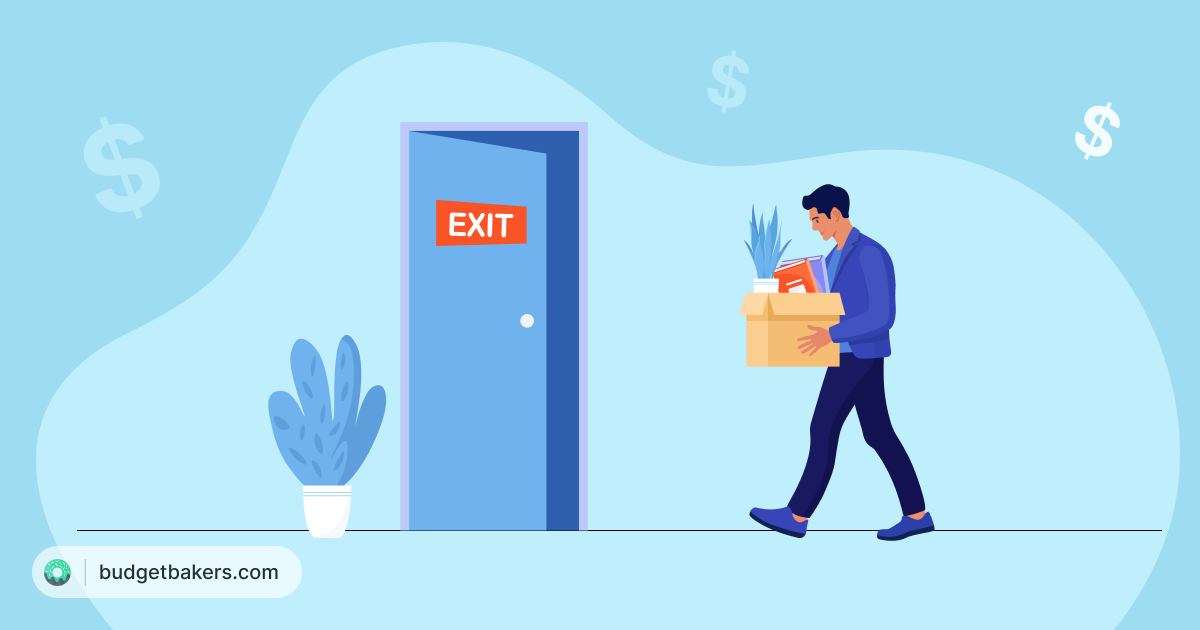So you have taken the big leap of quitting your job and being a digital nomad? Or, are you on the road currently and are looking for ways to save up for your future trips? Whichever of these two situations you may be in, one thing you should know or have already figured out by now is that leading a nomadic life or working from anywhere is not all that easy. Especially when it comes to money!
As a digital nomad, you are essentially a freelancer, but with the exception that you do not have a fixed base. Along with managing your irregular income, the added challenge in living and working as a digital nomad is to save enough money to keep travelling and sustaining this lifestyle.
With just a little bit of planning and tracking, you can still live the dream life of combining work and your passion to travel the world.
So how can you make sure that you save enough money to be carefree while on the road?
How To Manage Your Money As A Digital Nomad
Build an emergency fund
This is actually a step for those who are yet to hit the road. Or, this is something you should get done before you begin your nomadic life. Because this is what will ensure that you don’t get stuck midway or go into debt during your journey.
Ideally, digital nomads are advised to have at least six months worth of living expenses before they set out on their adventures. If that sounds too much to you, try to build at least a fund to the tune of three months of living expenses.
This is extremely important because, without savings, it is easy to fall into the debt downward spiral. We’ve already written about how to start building your emergency fund here.
Build a foolproof money system
Being a digital nomad brings with it a huge amount of freedom. But, with this freedom comes a lot of added responsibilities. You’ve to look out for yourself and that, too, not just at home, but around the globe.
As a digital nomad, we suggest that you have at least these two more essential savings accounts.
The expenses fund: If your emergency fund is more or less like a term deposit, think of this as your regular savings account. One of the first things to do when you start working is to have a separate salary (checking) account and a savings account.
Now divide your expenses into two categories: daily or recurring expenses and short-term expenses.
You get the drift, don’t you?
Your earnings will be credited to your checking account and you will use this account for your daily or recurring expenses like food, grocery, rent, transportation and so on. Your savings account will be used to save for short-term goals like travelling to your next destination and setting up shop there.
The retirement fund: It is common for freelancers and digital nomads to forget retirement savings altogether. Not saving for retirement means that you’d never stop working. Automate at least a small payment from each paycheck to an account that pays a high-interest and forget about it. Let it sit there and grow.
The earlier you start saving, the more money you’ll end up with once you’re ready to retire.
If you’re not sure how much to put away each month, try out this retirement calculator from NerdWallet.

Save on international bank fees
As you will be travelling and earning in different currencies, always take into account the exchange rate and inflation. The best way to make your money inflation-proof is to keep it bunched in different currencies. So, consider having your savings account in a strong currency which is known to fluctuate less often.
You could also use a service like TransferWise to hold your money in different currencies and send and accept payments in multiple currencies.
Create a budget
It might sound like a daunting task to plan your expenses in advance and allocate money to them, but trust us, this will make your life much easier and stress-free.
If you are just about to go to a new place, you may not be familiar with the cost of living there.
An easy way to arrive at an approximate figure for the cost of living is to multiply your rent by 3.
This will give you an idea of how much you will need to just get by in the city. Remember that you should be earning enough to meet this amount and also have an excess to put aside as savings. So set your freelance or consulting rates accordingly.
If you find the idea of budgeting a whole month in advance overwhelming, you could create mini-budgets to start with.
Before you budget, put aside a percentage of your earnings to both your immediate savings fund and your long-term emergency fund.
This need not be a huge amount in the beginning, you could start with something even as small as $5 at first. But make sure you do put aside something every month. It is all about creating a habit of saving.
From what remains, allocate tentative amounts of money to each expense head you will be spending on in a month–say, rent, food, internet, transportation, weekend getaways, entertainment and so on.
Learn about the different methods of budgeting here and choose one that will work for you.

Track your expenses
The main idea of budgeting is that you stay on track with your finances. The best way to do this is by actually tracking every dollar you spend. In this way, you will notice what you are spending on, what your real priorities are and where you need to cut back on.
We’re not going to tell you to cut back on your lattes or manicures because you are earning to be able to spend your money on what you like.
So, practising moderation and knowing your priorities is important.
Most digital nomads try to live thriftily when they are not travelling. They choose the most affordable accommodation options, eat local produce, cook at home, work from cafes that provide free Wi-Fi and are always on the lookout for cheap travel deals.
Once you have tracked your expenses for a month, compare this to your original budget and put aside the amount you saved into your short-term savings fund. If you find that you fell short of the allocated amount, it is a sign that you should revise your budget or take a look at your freelance rates.
Finally…
Making such a huge lifestyle change does not happen without its challenges. So, with a little planning and some discipline, you will soon be able to build a short-term as well as a long-term savings fund to help you sustain this wonderful lifestyle without fretting about your finances.
Over to you
What are your tips and tricks for digital nomads to manage money? Share them with us in the comments section below.
Follow BudgetBakers on Facebook, Twitter, Linkedin and Instagram to get more updates from us.


